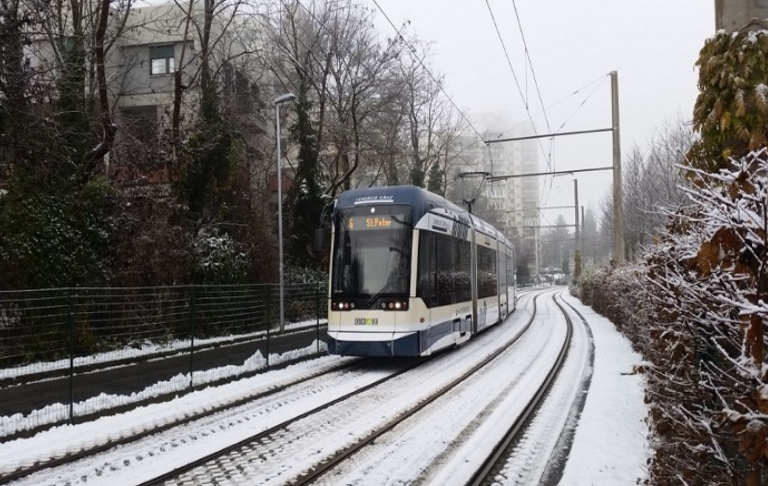
In a film documentary about the Eiffel Tower, we learned the following information: The elevators in the Eiffel Tower travel as many kilometres in a year as if they circled the entire globe two and a half times. How could…

In a film documentary about the Eiffel Tower, we learned the following information: The elevators in the Eiffel Tower travel as many kilometres in a year as if they circled the entire globe two and a half times. How could…

“Just our children still read in paper books, my wife and I are always using e-book readers “. I recently heard this statement from a friend (bookworm!). E-book readers have been around for quite some time, but it’s only recently…

Our food supply is largely dependent on imports of agricultural products. The war in Ukraine, which is a major producer of wheat and oilseeds, and the resulting disruption of supply chains make us painfully aware of this. Now, some European…

Waste production is a global problem. Worldwide, people are looking for solutions for this. Waste is produced in various locations. How much do waste do we produce at home? The Eurpoean Union tries to reduce our waste production. For instance,…

A lot of runners often jog the same route. Not only can running have a positive impact on your health but can also influence one’s good mood. Therefore, Alice runs at least once a week: One lap circling around her…

Plastic bottles, made of polymers (polyethylene terephthalate, PET), are part of our daily lives, but, unfortunately, they often end up in our terrestrial environment. The plastic structures decay and over time transform into microplastic, which travels through and mixes with…

St. Peter is a rapidly growing district in the periphery of a capital city. Nowadays, more than 10,000 people live in the three largest housing settlements and yet the area is inadequately connected to public transport, thus the car density…

In times of quarantine and curfew, toilet paper is considered to be an eminent commodity. But even before, going to the toilet – at least in Germany – had its price! Stopping on a highway, peeing only once, is costing…

Being one of our five senses, humans heavily rely on their sight, making vision and visibility important aspects of our daily lives. Good sight is an important safety issue, especially when driving or cycling at night, when lots of people…

That honeybees are skillfully building hexagonal honeycomb cells has been well known for centuries. Whoever is lucky enough to see these structures in real life can only be fascinated by the extremely precise construction art of these small insects. The…
You need to load content from reCAPTCHA to submit the form. Please note that doing so will share data with third-party providers.
More InformationYou are currently viewing a placeholder content from Turnstile. To access the actual content, click the button below. Please note that doing so will share data with third-party providers.
More InformationYou are currently viewing a placeholder content from Facebook. To access the actual content, click the button below. Please note that doing so will share data with third-party providers.
More InformationYou are currently viewing a placeholder content from Instagram. To access the actual content, click the button below. Please note that doing so will share data with third-party providers.
More InformationYou are currently viewing a placeholder content from OpenStreetMap. To access the actual content, click the button below. Please note that doing so will share data with third-party providers.
More InformationYou are currently viewing a placeholder content from Google Maps. To access the actual content, click the button below. Please note that doing so will share data with third-party providers.
More InformationYou are currently viewing a placeholder content from YouTube. To access the actual content, click the button below. Please note that doing so will share data with third-party providers.
More InformationYou are currently viewing a placeholder content from Vimeo. To access the actual content, click the button below. Please note that doing so will share data with third-party providers.
More InformationYou need to load content from hCaptcha to submit the form. Please note that doing so will share data with third-party providers.
More InformationYou need to load content from reCAPTCHA to submit the form. Please note that doing so will share data with third-party providers.
More InformationYou are currently viewing a placeholder content from Turnstile. To access the actual content, click the button below. Please note that doing so will share data with third-party providers.
More InformationYou are currently viewing a placeholder content from X. To access the actual content, click the button below. Please note that doing so will share data with third-party providers.
More Information